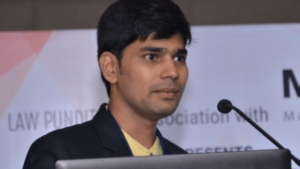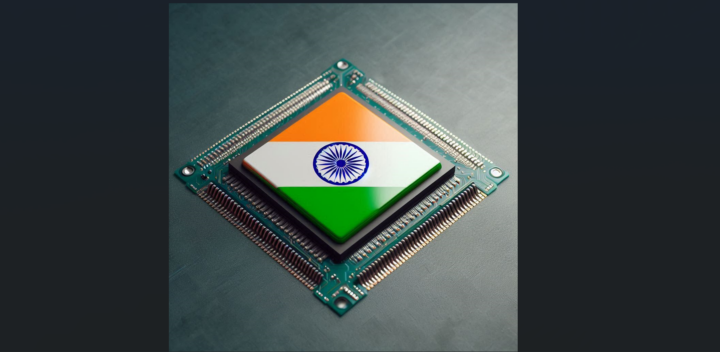With engineering, medicine and accounting all being slowly eaten away by all-knowing artificial intelligence, it was only a matter of time before AI and machine-learning came for the lawyers. The rising stars of legal tech in India try to put our minds at ease that we shouldn’t be worried about the coming legal order.
Larissa doesn’t sound very reassuring. She coldly responds to a man asking her for the process of getting divorced by saying that ‘[o]nce you file a divorce petition and serve it on your spouse you will have to wait at least 6 months for your divorce to be finalised…’. Her tone is stilted and reveals little empathy and the fact that she has no face probably doesn’t help either. It’s just as well that Larissa is a prototype NLP-bot aimed at dispensing advice to an estranged spouse. If she were better at her job, lawyers might lose theirs. But what risk do lawbots like Larissa (or more convincing iterations of her) really pose to lawyers?
For one, in a country like India, artificial intelligence can help in tasks that require an unnecessary amount of graft. ‘Indian law firms still do a lot of things manually and have outdated software. They’re behind other countries by 10 years,’ is how Anshul Gupta put it. Along with his cofounders, Gupta was shocked that lawyers were still doing keyword searches on cases and they sought to make lawyer’s lives easier by founding MikeLegal. ‘That’s where we started and that’s where Mike was born.’ Gupta told us.
Unlike Larissa, Mike can’t talk yet but he does read through questions very thoroughly. ‘Mike actually understands natural English.’ claimed Gupta, adding that ‘it understands the context of your questions. You can ask Mike to show you cases where the patentees admitted no inventive step. Our system goes through and finds detailed passages of law. With current software it can take 2-3 hours of research and with us it takes 5 minutes.’
At the moment, Mike is only interested in intellectual property law but the people at Delhi-based Mikelegal have ambitions to scale to different domains and jurisdictions (like the EU and Australia) in the future. It’s also the hope that Mike can give you legal opinions but Gupta is sceptical that you can take the variable element out of litigation completely. According to Gupta, lawyers are still safe for the next 30-40 years.
Krishna Sundaresan of Surukam agrees with this sentiment to an extent though junior lawyers and clerks may have a reason to worry. ‘Our product might replace junior lawyers,’ Sundaresan said but added that it’s better to ‘think of it as a productivity tool. Excel didn’t kill accountants, it made them a lot more productive. A lot of skill sets that people have are not going to be relevant but you can’t take away the need for lawyers.’
Surukam’s program CruxIQ, established in Chennai, undertakes a first-level review of contracts, the task usually given to junior lawyers and clerks at a legal practice. The Chennai-based startup had shown enough promise with its AI engine that they were included in the 2016 batch of Microsoft Accelerator Bengaluru.
At this stage, Surukam doesn’t have a drafting module that can generate contracts but one can customise their own contracts using their product. They’re also hoping to include compliance documents and judgments in the near future. Given that the program is built to understand natural language commands, it is also something that might be of use to the layman–a contractor for example–though Sundaresan is quick to point out that it should still be used for minor matters by non-experts and that ‘if you’re planning to sell your company then you should probably not use this tool.’

Anirudh Loya of ANVIlegal
Another startup that looks to take contract law one step further is the new Hyderabadi enterprise ANVIlegal. Started by childhood friends Anirudh Loya (yes, his real name and no, he’s no lawyer) and Mayur Mundra(he’s the lawyer), the current machine learning program (ANVIinsight) that they have has been employed in 4 law firms in India and was launched this year at Legal Tech Fair (the first of its kind in India). It has been used in helping lawyers draft contracts using previously defined clauses. The next phase in their development will be ANVIintelligence which gives the top 3 judgments for lawyers to use given an initial query. But it is their next ambition that, if pulled off, might be something of a game changer. Baptised ANVIrobot, the program is intended to draft contracts based on the lawyer’s or law firm’s own personal drafting style. ‘The ultimate goal is to have you create contracts at your fingertips in your own language. There are other products that can create contracts but that would be within the defined language of that company.’ Even in the case of ANVIrobot, Loya puts our mind at ease that the lawyers still have discretionary power to choose which clauses get to stay and which end up on the cutting room floor.
So it appears that India’s legal tech leaders has a meeting of the minds when it comes to lawbots and the future of lawyers. It’s almost certainly true that many tasks and jobs have been mechanised and made redundant. It wasn’t long ago that the Indian advocate would have a team of typists churning out affidavits. And many tools like LexisNexis and Filefacets have already made the search and organisation of legal opinions or M&A deals infinitely easier to manage.
There is also the matter of interpretation and that adversarial beast litigation that seems, at present, even beyond powerful predictive engines like Premonition. ‘Wherever there are interpretative decision-making processes to make, there will be need for lawyers.’ Sundaresan of Surukam concluded. ‘Anytime you can think of a situation where 2 lawyers don’t agree, that’s where lawyers are going to be involved. Anytime they’re going to give the same answer, that’s going to be done by AI.’












